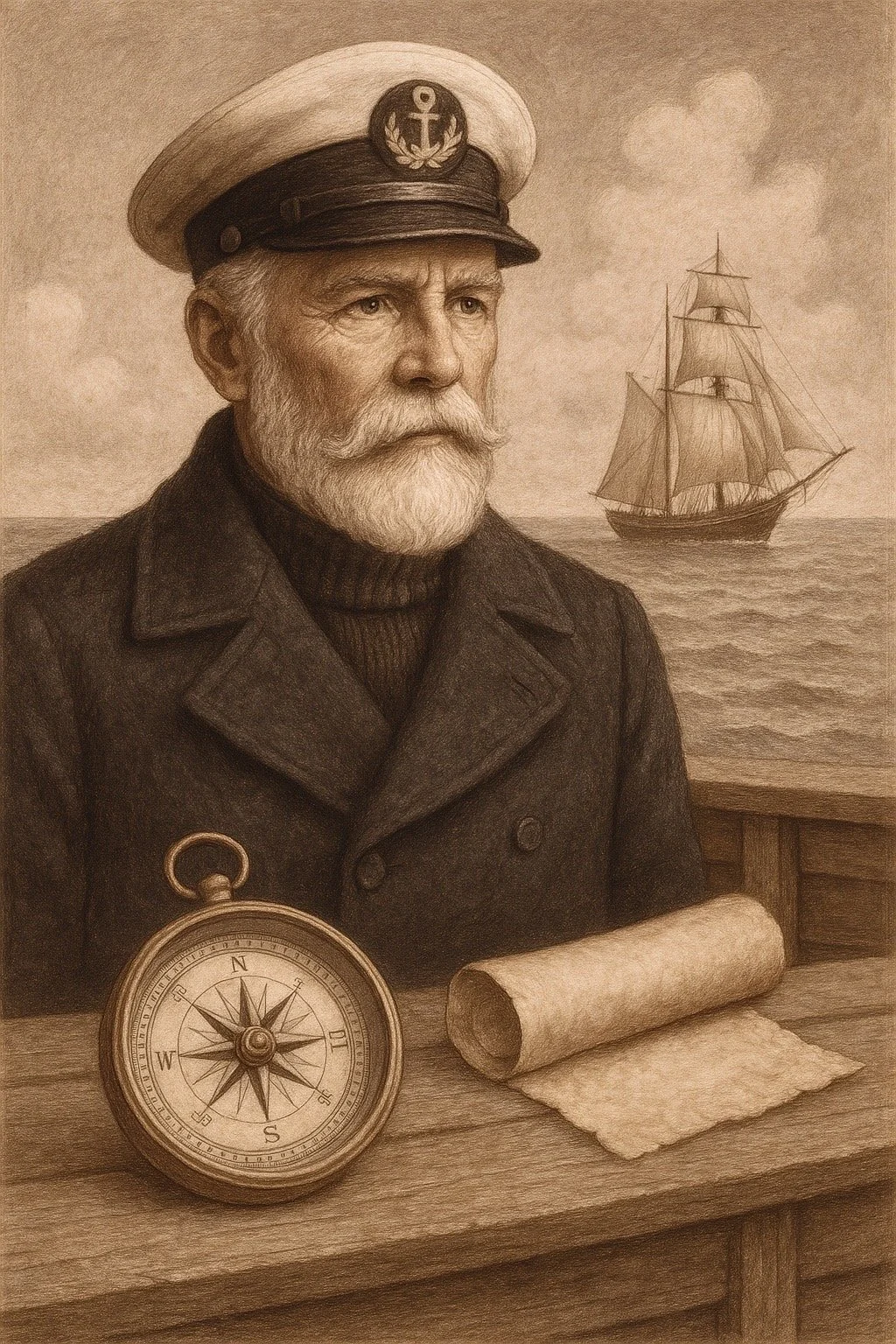Great Leaders are like Great Captains
/AI Generated
Our school board chair shared this short article recently as a devotional during a board meeting. I believe it will inspire and perhaps remind each of us of the fundamentals of effective leadership. Unfortunately, we were not able to discover the original author. If you happen to know, please share the information as a comment to this article. I want to give proper attribution.
Great Leaders are like Great Captains
Author Unknown
I grew up in Michigan around the Great Lakes. Deep in my soul, I have a profound love of water, boats, sunsets, and lighthouses. The Great Lakes are clear, cold, unsalted, and deep - very deep - parts of Lake Superior are more than 1,100 feet deep. With over 10,900 miles of shoreline, they hold approximately 6 quadrillion gallons of fresh water - one-fifth of the world’s fresh surface water, 95 percent of the U.S. fresh water supply, and 84 percent of the surface water supply in North America. Spread evenly across the continental U.S., the Great Lakes would submerge the country under about 9.5 feet of water. For seventy-three summers, my family has been blessed to visit these waters, interact with them, and marvel at them.
As I’ve “captained” small boats on the inland lakes and the Great Lakes of Michigan, I’ve discovered what Don Soderquist, former Vice Chairman of Walmart, said about great leaders, “Great leaders are like great captains.” Here is what I’ve learned that I thought might be helpful to you.
1. Great captains chart a great course. The best captains know the best destinations and take great care in plotting and navigating the best course of travel resulting in the safe arrival of all passengers. Great leaders likewise spend inordinate amounts of time contemplating the best course forward for those entrusted to them. They know “the way” that results in the best journey possible with safe arrival.
2. Great captains know about hidden danger. Some dangers en route are sub-surface and not indicated on the charts. Great captains know they exist and steer clear of them, always bringing the ship to safe harbor. Likewise, great leaders maintain an intimate awareness of the hidden dangers few see and understand. They wisely navigate these dangers for the benefit of those entrusted to them.
3. Great captains are steady at the helm. They don’t unnecessarily cause the ship to pitch and roll, endangering and upsetting passengers. They change course only when necessary and in a way that passengers and crew are not unduly upset in the process. Great leaders do not constantly create unnecessary change. They understand change is difficult and upsetting for most. Thus, they steer with great caution and prudence as necessary.
4. Great captains visit passengers and crew. They get out and about the vessel, often visiting the engine room, the deck, the galley, and the living quarters, gaining insight into the condition of the ship and it guests. Great leaders, too, get out of the corner office and visit their people, gaining insight and intimate knowledge of the condition of the organization and its operations.
5. Great captains handle emergencies well. In crisis, great captains respond with knowledge, decisiveness, and tenacity. Emergencies don’t create wisdom, character and skill; they reveal them. Thus, captains and leaders who are well prepared deliver wisdom and action in times of difficulty for the benefit of their people.
Are you setting an eternal course for yourself, your family, and your team? Are you aware of hidden dangers in the spiritual environment on your leadership journey? Are you steady at the wheel, finding proximity with your people, and well prepared to lead in an emergency?
Be sure your leadership” be anchored to the rock of ages, Jesus, the lighthouse who guides and directs great captains and great leaders to the supreme eternal destination.

